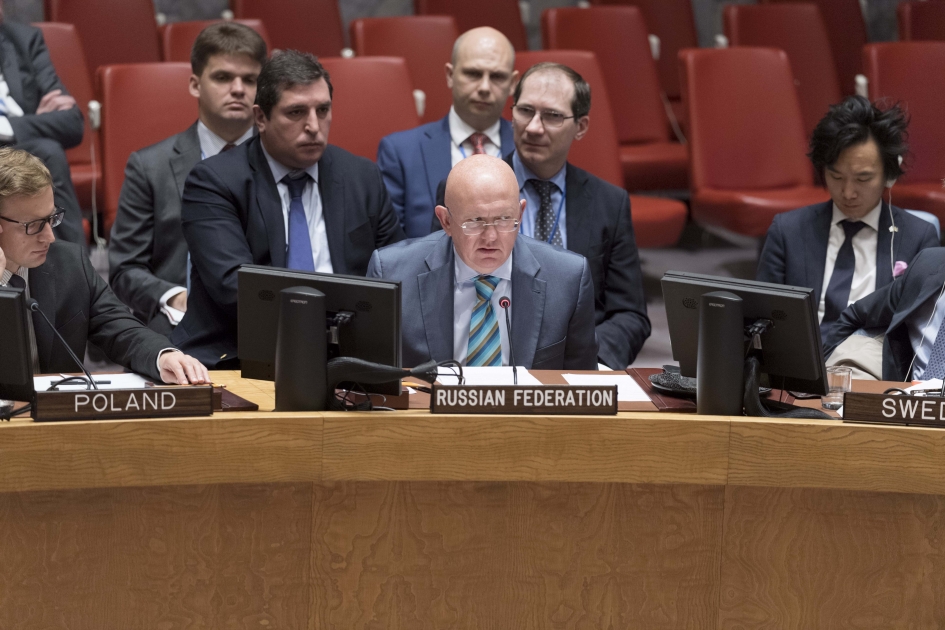Statement by Ambassador Vassily A. Nebenzia, Permanent Representative of the Russian Federation to the United Nations, at the Security Council meeting on Syria
We welcome Special Envoy Staffan de Mistura to the Security Council today. We heard a briefing from Mr. De Mistura in this Chamber (see S/PV.8373) just 10 days ago.
It is hard to recall any other instances of public briefings of the Council by United Nations mediators on every contact with the parties to a given conflict or the international stakeholders involved. Experience has shown that this kind of work requires great patience, caution and a very measured dose of publicity so as not to harm the matter at hand.
We are therefore not convinced that those who insisted on convening today’s open meeting are genuine fans of a peaceful settlement in Syria. It is not hard to postulate that what we are seeing is rather the latest show of tragic breast-beating and moralizing directed at Russia. There is noticeable action being taken at the moment with regard to Syria. On one hand, the United Nations is working within the framework of resolution 2254 (2015).
The Idlib agreements are being implemented and our Turkish partners are working diligently on that. The guarantors of the Astana process are making serious efforts to halt the violence on the ground and create conditions that can advance the intra-Syrian dialogue. It is difficult, but concrete progress is clearly being made. People in many parts of Syria are beginning to return to normal life and feel that they are safer.
On the other hand, we have a group of self-styled examiners sitting on high who have done no visible service in the cause of a settlement but who for some reason have arrogated to themselves the right to a biased investigation of what Russia is doing. We want to emphasize that there are no grounds for establishing artificial deadlines for creating a constitutional committee based on the outcomes of the Syrian National Dialogue Congress in Sochi. It cannot be imposed under conditions that run counter to the wishes of the Syrians themselves. Mr. De Mistura’s visit to Damascus at the invitation of the Syrian Government was useful as part of the pathway to achieving the goals outlined in Sochi.
We are confident that for the remainder of his term he will spare no effort to advance the issue within his mandate as mediator in full respect for Syria’s sovereignty, and we will help him do that. The very fact of the Special Envoy’s visit to Damascus is crucial, but it is not the only development on the Syrian settlement. The Astana troika recently held consultations in Moscow, and representatives of Turkey, Russia, Germany and France are meeting in Istanbul tomorrow for a quadrilateral summit in which the Special Envoy will also participate. Incidentally, according to our information and assessment, his visit to Damascus was very useful and constructive.
We should not underestimate its importance and the momentum that his visit can give the settlement process. However, we caution those who would like to reap dubious dividends from an artificially whipped-up crisis that it would do criminal damage to the political process. That applies first and foremost to the Western participants in the so-called small group. We believe that the Secretary-General and his Special Envoy understand the full depths of their responsibility in this delicate matter.
We assume that Mr. De Mistura’s briefing today is not his political farewell. He can still get a great deal done before his mandate ends, and we are sure that he will work tirelessly to get results. I will say it again — we will help him in every possible way.
